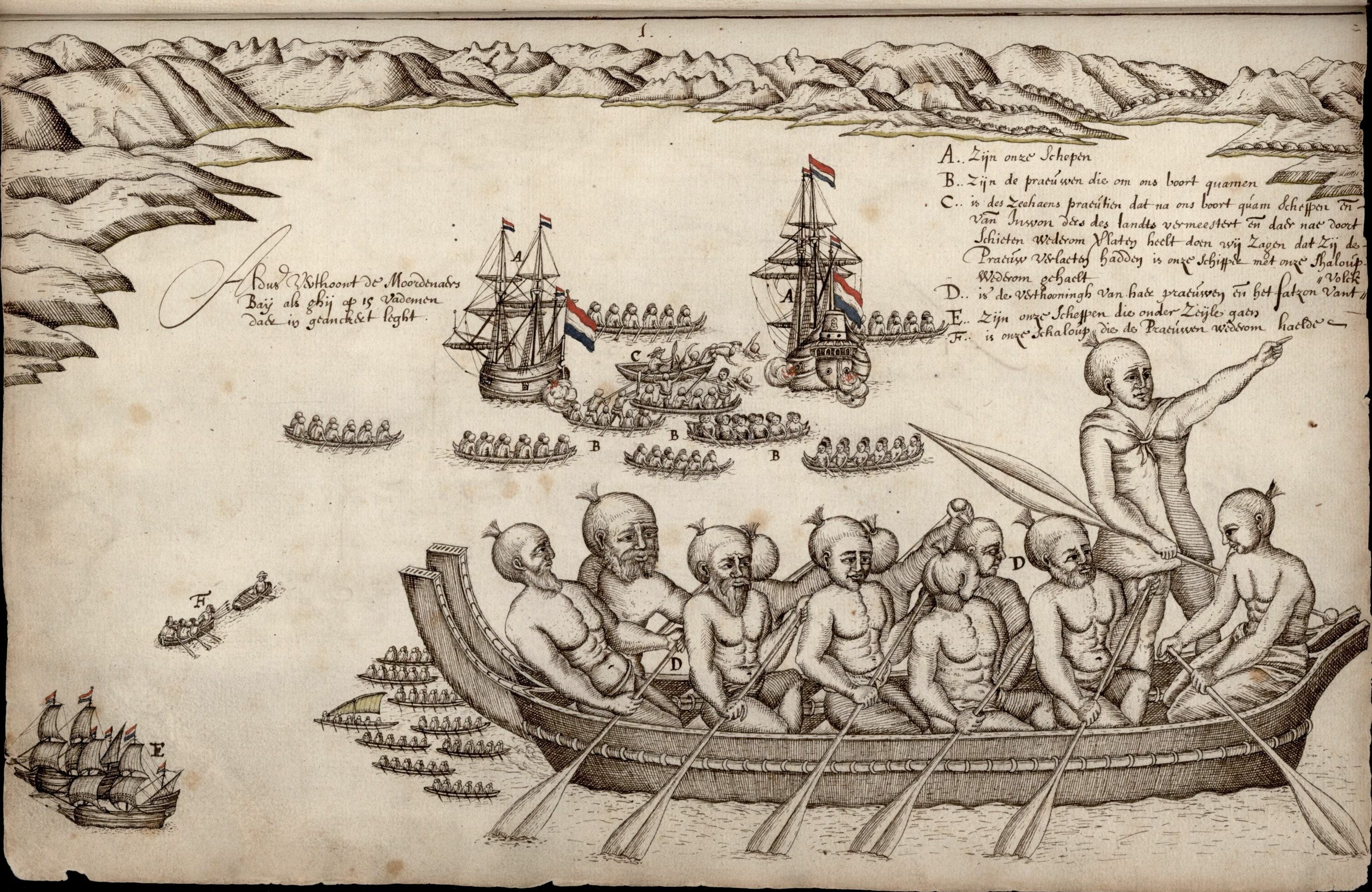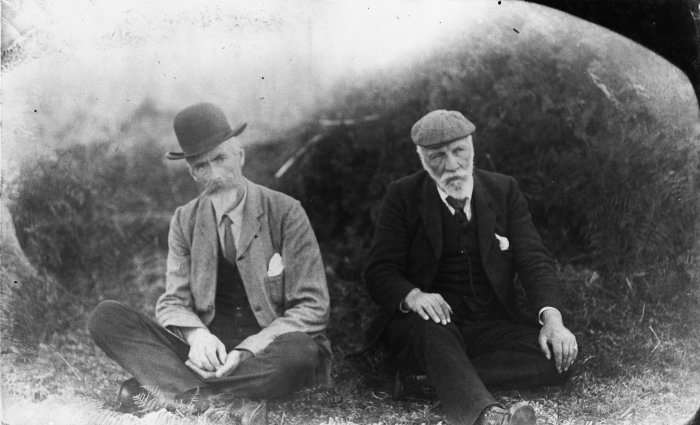|
Kuramārōtini
In Māori mythology, Kuramārōtini was the daughter of Toto, a chief of Hawaiki. Toto made a gift to her of the canoe Matahourua, in which she went out fishing with her husband Hoturapa and their friend Kupe. Kupe tricked Hoturapa to dive into the water to free one of the lines. Once Hoturapa was overboard, Kupe set sail for New Zealand with Kuramārōtini (Tregear 1891:186). In some stories, Kuramārōtini is the woman who first named New Zealand. It is said she exclaimed "He ao! He ao! He aotearoa!" (A cloud! A cloud! A long white cloud!) coining the Māori name for New Zealand, Aotearoa. References * Edward R. Tregear, ''Maori-Polynesian Comparative Dictionary'' (Lyon and Blair: Lambton Quay), 1891. * Te Ahukaramū Charles Royal,First peoples in Māori tradition – Kupe, Te Ara – the Encyclopedia of New Zealand ''Te Ara: The Encyclopedia of New Zealand'' is an online encyclopedia established in 2001 by the New Zealand Government's Ministry for Culture and Heritage. ... [...More Info...] [...Related Items...] OR: [Wikipedia] [Google] [Baidu] |
Kupe
Kupe was a legendary Polynesian explorer who, according to Māori oral history, was the first person to discover New Zealand. He is generally held to have been born to a father from Rarotonga and a mother from Raiatea, and probably spoke a Māori proto-language similar to Cook Islands Māori or Tahitian. His voyage to New Zealand ensured that the land was known to the Polynesians, and he would therefore be responsible for the genesis of the Māori people. Kupe was born in the geographically uncertain Māori homeland of Hawaiki, to a father from Rarotonga and a mother from Raiatea, between 40 and 23 generations ago. The more specific reasons for Kupe's semi-legendary journey, and the migration of Māori in general, have been contested. Māori oral history recounts that Hawaiki and other Polynesian islands were experiencing considerable internal conflict during his time, which is thought to have possibly caused an exodus. Kupe features prominently in the mythology and or ... [...More Info...] [...Related Items...] OR: [Wikipedia] [Google] [Baidu] |
Toto (mythology)
In Māori mythology, Toto was a chief in Hawaiki. He had two daughters, Kuramārōtini, the wife of Hoturapa, and Rongorongo, the wife of Turi. Toto felled a tree and made two canoes. One of these, the '' Aotea'', was given to Turi, and was sailed by him to New Zealand. The other canoe, the Matahourua, was later commandeered by Kupe Kupe was a legendary Polynesian explorer who, according to Māori oral history, was the first person to discover New Zealand. He is generally held to have been born to a father from Rarotonga and a mother from Raiatea, and probably spoke a ... who sailed it to New Zealand with Kuramārōtini, Hoturapa's wife (Tregear 1891:527). References *E.R. Tregear, ''Maori-Polynesian Comparative Dictionary'' (Lyon and Blair: Lambton Quay), 1891. Māori mythology Legendary Polynesian people {{Māori-myth-stub ... [...More Info...] [...Related Items...] OR: [Wikipedia] [Google] [Baidu] |
Hoturapa
In Māori tradition, Hoturapa was a chief of Hawaiki. His wife Kuramārōtini owned the canoe Matahourua. One day, Hoturapa and his wife went out fishing in the Matahourua with their friend Kupe. Kupe tricked Hoturapa to dive into the water to free one of the lines. Once Hoturapa was overboard, Kupe set sail for New Zealand New Zealand () is an island country in the southwestern Pacific Ocean. It consists of two main landmasses—the North Island () and the South Island ()—and List of islands of New Zealand, over 600 smaller islands. It is the List of isla ... with Kuramārōtini (Tregear 1891:86, 186). References *E.R. Tregear, ''Maori-Polynesian Comparative Dictionary'' (Lyon and Blair: Lambton Quay), 1891. Māori mythology Legendary Polynesian people {{Māori-myth-stub ... [...More Info...] [...Related Items...] OR: [Wikipedia] [Google] [Baidu] |
Māori Mythology
Māori mythology and Māori traditions are two major categories into which the remote oral history of New Zealand's Māori people, Māori may be divided. Māori myths concern tales of supernatural events relating to the origins of what was the observable world for the pre-European Māori, often involving gods and demigods. Māori tradition concerns more folkloric legends often involving historical or semi-historical forebears. Both categories merge in to explain the overall origin of the Māori and their connections to the world which they lived in. The Māori did not have a writing system before European contact, beginning in 1769, therefore they relied on oral retellings and recitations memorised from generation to generation. The three forms of expression prominent in Māori and Polynesian oral literature are genealogical recital, poetry, and narrative prose. Experts in these subjects were broadly known as . The rituals, beliefs, and general worldview of Māori society were ... [...More Info...] [...Related Items...] OR: [Wikipedia] [Google] [Baidu] |
Hawaiki
(also rendered as in the Cook Islands, Hawaiki in Māori, in Samoan, in Tahitian, in Hawaiian) is, in Polynesian folklore, the original home of the Polynesians, before dispersal across Polynesia. It also features as the underworld in many Māori stories. Anne Salmond states ''Havaii'' is the old name for Raiatea, the homeland of the Māori. When British explorer James Cook first sighted New Zealand in 1769, he had on board Tupaia, a Raiatean navigator and priest. Cook's arrival seemed to be a confirmation of a prophecy by Toiroa, a priest from Māhia. At Tolaga Bay, Tupaia conversed with the ''tohunga'' associated with the school of learning located there, called Te Rawheoro. The priest asked about the Māori homelands, 'Rangiatea' (Ra'iatea), 'Hawaiki' (Havai'i, the ancient name for Ra'iatea), and 'Tawhiti' (Tahiti). Etymology Linguists have reconstructed the term to Proto- Nuclear Polynesian ''*sawaiki''. The Māori word figures in traditions about the ar ... [...More Info...] [...Related Items...] OR: [Wikipedia] [Google] [Baidu] |
Matahourua
In Māori tradition, ''Matahourua'' was the canoe of the legendary hero Kupe, who, in some accounts, was the discoverer of Aotearoa (New Zealand) See also *List of Māori waka This is a list of Māori people, Māori (canoes). The information in this list represents a compilation of different oral traditions from around New Zealand. These accounts give several different uses for the waka: many carried Polynesians, Poly ... References *R.D. Craig, ''Dictionary of Polynesian Mythology'' (Greenwood Press: New York, 1989). *G. Grey, ''Polynesian Mythology'' (reprint Taplinger Press: New York, 1970). Māori waka Māori mythology {{Māori-myth-stub ... [...More Info...] [...Related Items...] OR: [Wikipedia] [Google] [Baidu] |
Aotearoa
''Aotearoa'' () is the Māori name for New Zealand. The name was originally used by Māori in reference only to the North Island, with the whole country being referred to as ''Aotearoa me Te Waipounamu'' – where ''Te Ika-a-Māui'' means North Island, and ''Te Waipounamu'' means South Island. In the pre-European era, Māori did not have a collective name for the two islands. Several meanings for Aotearoa have been proposed; the most popular translation usually given is "land of the long white cloud", or variations thereof. This refers to the cloud formations which are believed to have helped early Polynesian navigators find the country in Māori oral tradition. Beginning in the late 20th century, ''Aotearoa'' has become widespread in the bilingual naming of national organisations and institutions. Since the 1990s, it has been customary for particular parties to sing the New Zealand national anthem, " God Defend New Zealand" (or "Aotearoa"), in both Māori and English, wh ... [...More Info...] [...Related Items...] OR: [Wikipedia] [Google] [Baidu] |
Te Ara – The Encyclopedia Of New Zealand
''Te Ara: The Encyclopedia of New Zealand'' is an online encyclopedia established in 2001 by the New Zealand Government's Ministry for Culture and Heritage. The web-based content was developed in stages over the next several years; the first sections were published in 2005, and the last in 2014 marking its completion. ''Te Ara'' means "the pathway" in the Māori language, and contains over three million words in articles from over 450 authors. Over 30,000 images and video clips are included from thousands of contributors. History New Zealand's first recognisable encyclopedia was '' The Cyclopedia of New Zealand'', a commercial venture compiled and published between 1897 and 1908 in which businesses or people usually paid to be covered. In 1966 the New Zealand Government published '' An Encyclopaedia of New Zealand'', its first official encyclopedia, in three volumes. Although now superseded by ''Te Ara'', its historical importance led to its inclusion as a separate digital re ... [...More Info...] [...Related Items...] OR: [Wikipedia] [Google] [Baidu] |
Legendary Polynesian People
Legendary may refer to: * Legend, a folklore genre * Legendary (hagiography) * J. R. R. Tolkien's legendarium Film and television * ''Legendary'' (2010 film), a 2010 American sports drama film * ''Legendary'' (2013 film), a 2013 film featuring Dolph Lundgren * ''Legendary'' (TV series), a 2020 American reality competition series * "Legendary" (''Legends of Tomorrow''), a television episode Music Albums * ''Legendary'' (AZ album), 2009 * ''Legendary'' (The Summer Set album) or the title song, 2013 * ''Legendary'' (TQ album) or the title song, 2013 * ''Legendary'' (Tyga album) or the title song, 2019 * ''Legendary'' (Z-Ro album), 2016 * ''Legendary'' (Zao album), 2003 * ''Legendary'', by Kaysha, 2006 * '' The Legendary'', an EP by the Roots, 1999 Songs * "Legendary" (Deadmau5 and Shotty Horroh song), 2017 * "Legendary" (Welshly Arms song), 2016 * "Legendary", by Alaska Thunderfuck from ''Anus'', 2015 * "Legendary", by Daya from '' Daya'', 2015 * "Legendary", by Roy ... [...More Info...] [...Related Items...] OR: [Wikipedia] [Google] [Baidu] |


